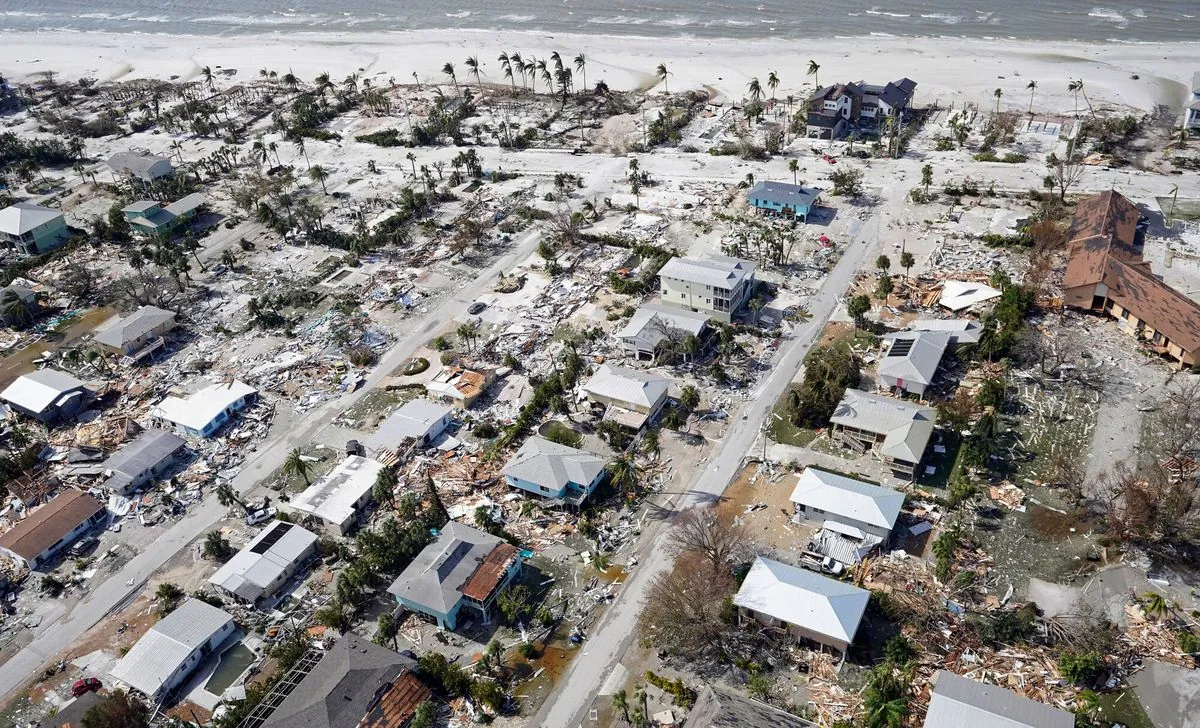Tropical Storm Helene, which made landfall in northwestern Florida as a powerful Category 4 hurricane on September 26, 2024, has left a trail of destruction across the southeastern United States. The storm's impact has been felt from Florida to the Carolinas, with millions of residents experiencing power outages and widespread flooding.
As of September 27, 2024, authorities have confirmed at least four storm-related fatalities. Emergency responders are currently engaged in extensive search and rescue operations, particularly in areas severely affected by floodwaters.
Kevin Guthrie, executive director of the Florida Division of Emergency Management, emphasized the ongoing dangers post-storm. He urged residents to exercise caution during cleanup efforts, highlighting the risks posed by flooded roadways, downed power lines, and debris.
In North Carolina, Governor Roy Cooper reported that nearly 300 roads were closed and over 100 swift-water rescues had been conducted. The governor described Helene as "one of the worst storms in modern history for parts of western North Carolina," citing life-threatening flash flooding and numerous landslides.
The storm's effects were felt far inland, with Atlanta experiencing significant flooding. Jalen Cruz, a 25-year-old resident, described waking up to find his apartment inundated. "It could've been a lot worse," Cruz said, "but I was so sad, it's my first apartment."
Helene's impact extends beyond residential areas. In Savannah, Georgia, a historic building partially collapsed, while in Augusta, State Senator Harold Jones II reported widespread tree damage and road blockages.
The storm has also affected critical infrastructure. Kim Greene, CEO of Georgia Power Co., warned that power outages might continue to rise due to saturated ground causing more trees to fall.
"To have something that was even bigger than those two storms causing a lot of damage, I think it's a sense of trauma for the community. It's demoralizing because, it's like, we worked on this, and now we could be potentially worse off than we were before."
As Helene moves inland, other tropical systems are active in the Atlantic. Hurricane Isaac has formed in the open Atlantic, potentially causing dangerous waves near Bermuda. Additionally, Tropical Storm Joyce has developed but is not currently threatening land.
The National Hurricane Center continues to monitor these systems closely. As the Atlantic hurricane season, which officially runs from June 1 to November 30, progresses, residents in coastal areas are reminded to stay vigilant and prepared.
Climate scientists note that while individual storms cannot be directly attributed to climate change, the overall trend shows an increase in hurricane intensity and frequency due to warming ocean temperatures. The Accumulated Cyclone Energy (ACE) index, which measures the energy released by tropical cyclones, has shown an upward trend in recent decades.
As communities begin the process of recovery and rebuilding, the focus remains on immediate rescue efforts and ensuring public safety. Residents are urged to follow local authorities' instructions and take necessary precautions during cleanup operations.
